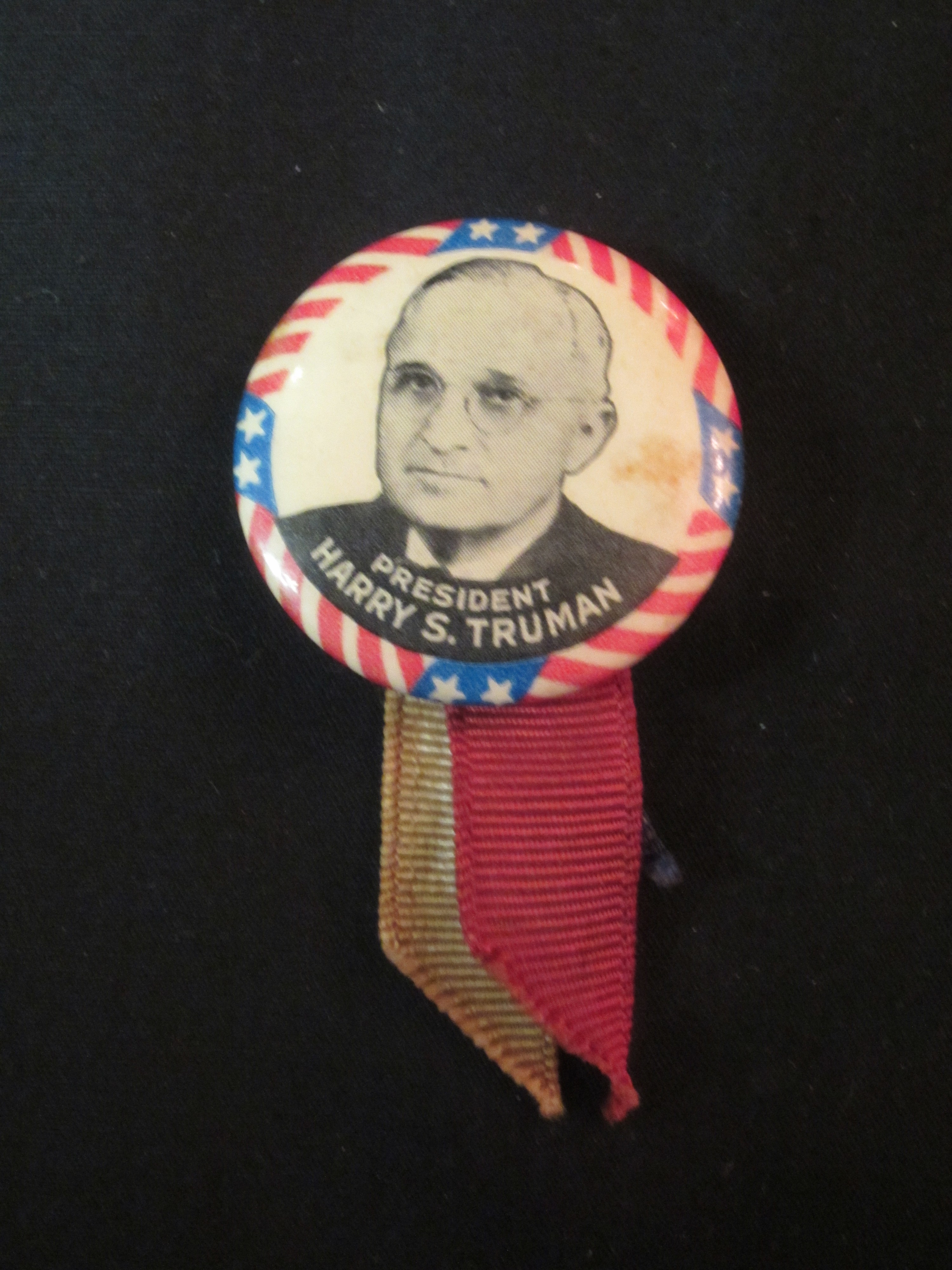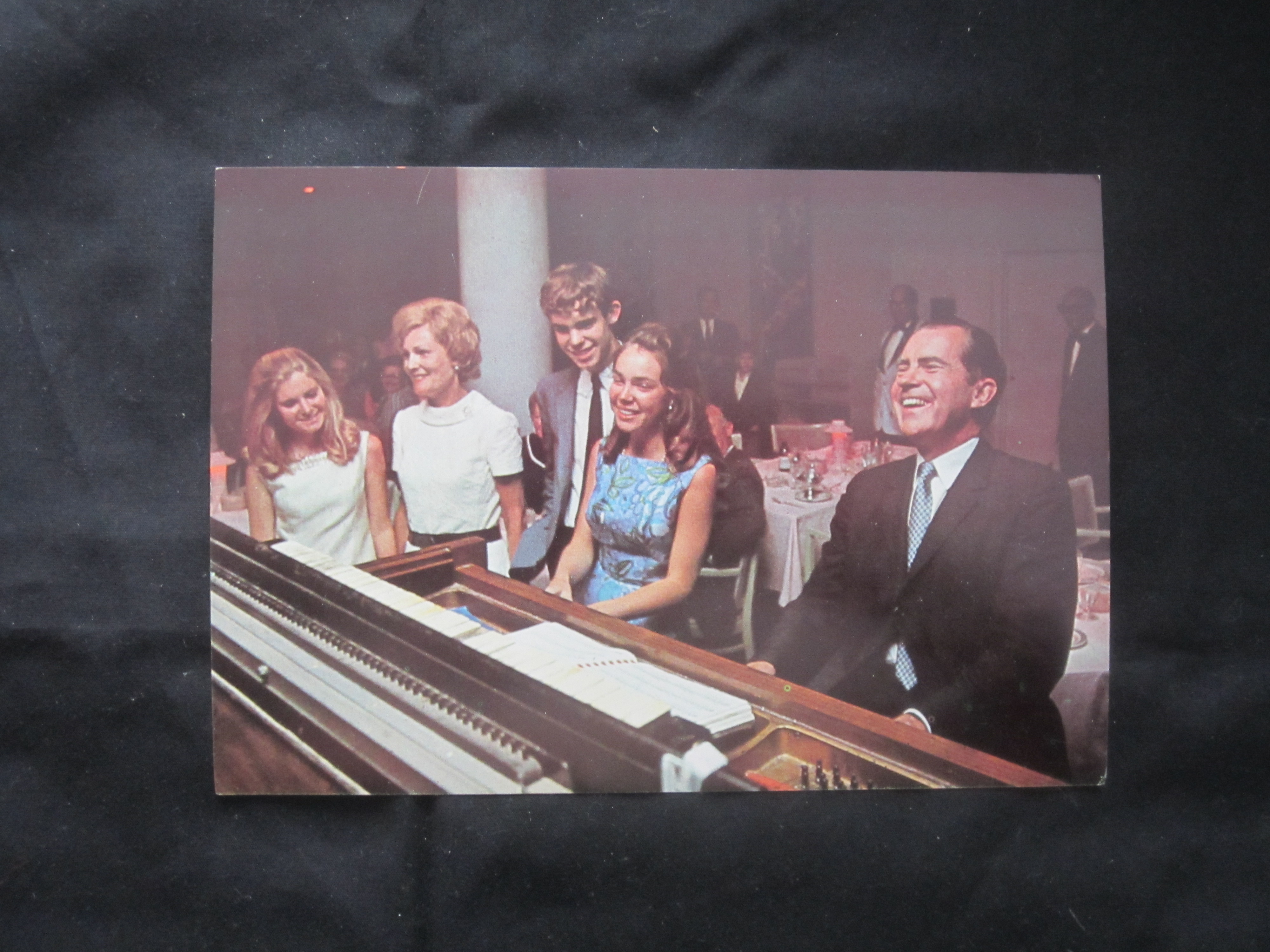
Last week, I looked at Presidents that only served one term. I excluded Presidents that rose to the office as a result of their predecessor passing (or resigning, as the case may be). This week, I’ll take a look at the ones that rose to the office because of the constitution instead of an election. And, I’ll look at their own electoral successes. Four Vice-Presidents rose to the highest office as a result of the passing of their boss. A fifth got the job because of a resignation. The first four won a term in their own right. The fifth barely lost (at least in the electoral college). Lets look at Teddy Roosevelt, Calvin Coolidge, Harry Truman, Lyndon Johnson and Gerald Ford.
Teddy Roosevelt (William McKinley) – McKinley was the third president to be assassinated. Roosevelt, the former governor of New York, hadn’t even been on the ticket the first time around. He was added to strengthen the ticket for the 1900 election campaign. It worked. After assuming the presidency, he observed that the office provided a “bully pulpit” to the office holder. He dramatically expanded the national park system. He won the election of 1904 (name the guy he ran against-’nuff said). He didn’t seek another term. And, he could have. In 1912, he tried a comeback as a third party candidate, finishing second. His political career came to an end.
Calvin Coolidge (Warren Harding) – Harding went on a trip to the west coast, developed pneumonia, and never recovered. Calvin Coolidge is the president that conservatives harken back to when they refer to the better days. Even Ronald Reagan referred to him as his favourite president. He won his own term in 1924 against Al Smith. The country wasn’t ready for a Catholic president. And, Coolidge would epitomize the “small government” conservative presidency that modern Republicans talk about.
Harry Truman (Franklin Roosevelt) – Harry Truman got his job by 82 days. If Franklin Roosevelt had passed away earlier, there was another Vice-President (though, given the election was 2 1/2 months before that, he still would have, ultimately, become the President). Roosevelt, had 3 different Vice-Presidents. For Franklin Roosevelt items CLICK HERE!Truman was his last. Truman would definitely put his stamp on the office. “The Buck Stops Here”. “Give Them Hell, Harry”. He sought his own term in 1948. Though the Chicago Sun Times called it for his opponent, Thomas Dewey, he won his own term. For Thomas Dewey items CLICK HERE! The Korean War began during his own term. A constitutional amendment was adopted during his term limiting the time a President could serve in office. He was exempted, but chose to not seek another term. For Harry Truman items CLICK HERE!
Lyndon Johnson (John Kennedy) – John Kennedy was the fourth (and last) president to have his life taken from him while in office. For John Kennedy items CLICK HERE!The assassination has still raised questions. There are many who believe that there was a conspiracy afoot. Many believe that his Vice-President, Lyndon Johnson, was part of that conspiracy. It is believed by many of those conspiracy theorists that Johnson was to be dropped from the ticket. There is no proof to substantiate any of the theories. However, upon Kennedy’s death, Johnson rose to the presidency and, a year later, won a term in his own right against Barry Goldwater. For Barry Goldwater items CLICK HERE! Johnson came forward with an aggressive agenda. The Civil Rights Act was adopted. The “Just Society” programs came into place. The Vietnam War expanded. Then, his address to the nation. “I will not seek, nor will I accept my party’s nomination”. He would serve out his term and not seek another. For Lyndon Johnson items CLICK HERE!
Gerald Ford (Richard Nixon) – Nixon remains the only president to have ever resigned the office. Gerald Ford remains the only person to have assumed the office without winning a national office through a general election. A corruption scandal forced Vice-President Spiro Agnew from office. Under changes to the Constitution, a new person could be appointed to the office. Gerald Ford became the first person to ever have that privilege. Soon after, the Watergate scandal would force Nixon to resign his office. For Richard Nixon items CLICK HERE! Gerald Ford became president. The final troops came home from Vietnam during his brief time in office. What’s more often remembered about his time in office is his pardon of his former boss, Richard Nixon. Given the closeness of the vote in the 1976 general election, it’s quite easy to believe that the pardon cost him the election. His time in office was brief. The Democrats used Watergate and defeated him. For Gerald Ford items CLICK HERE! Jimmy Carter became the 39th president of the United States. For Jimmy Carter items CLICK HERE!
In the case of Gerald Ford, it’s clear he lost because of the scandal that elevated him to the presidency. Though not involved in any way with it, his pardon of Nixon was enough to tie him to the scandal. However, the four who made it because of the passing of the predecessor represent another story. Roosevelt, Coolidge and Truman had opportunity to make the office their own. Were their predecessors forgotten? And, were people happy with what they saw? Even Johnson had legislative victories prior to facing the voters. Again, were voters happy with what they saw. Did the four receive “sympathy” votes in honour of the men that passed? Was it a simple matter of voters being happy with the job they were doing in the office? Were their opponents just weak? This latter one is the most interesting of all. Opponents always seem weak after they’ve lost. If one looks closely, 3 of the four really were weak (I’m being generous to New York governor Thomas Dewey).
In the end, especially in the days before extensive internal polling was done, it’s really impossible to know why voters did what they did. One thing is clear…in the twentieth century, having your boss die was good for ones own electoral prospects.
Do you agree? Disagree? Leave your thoughts in the comment section.

